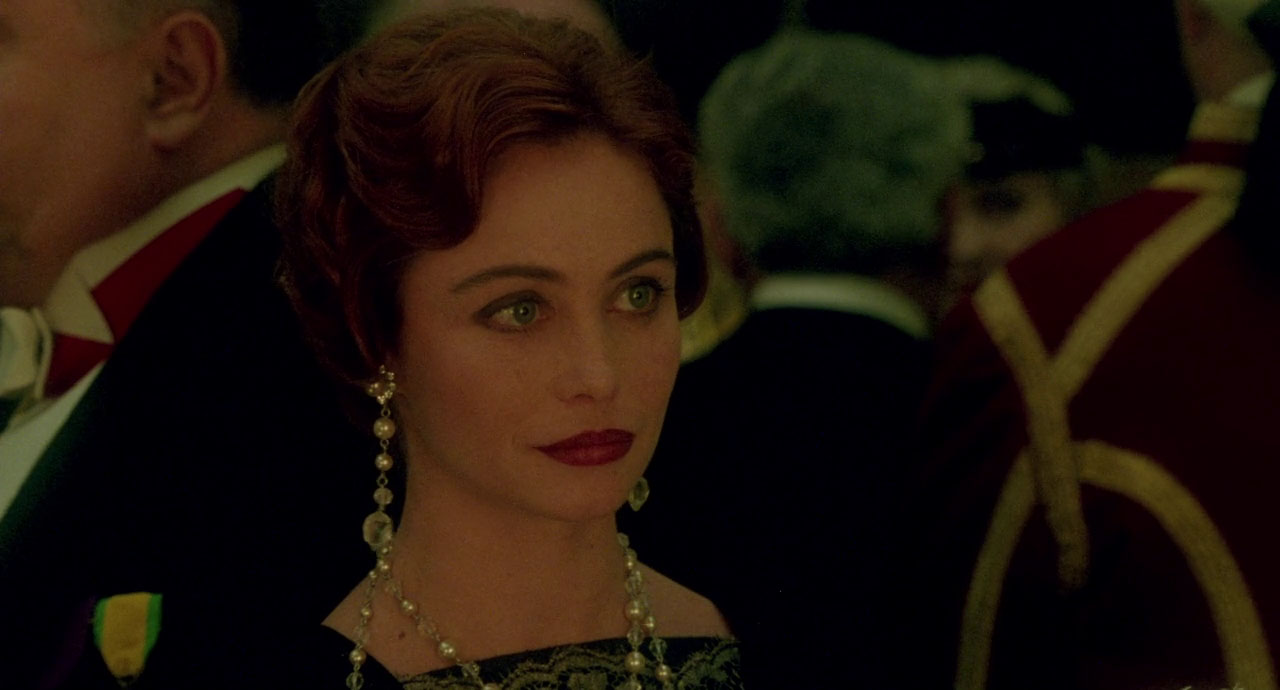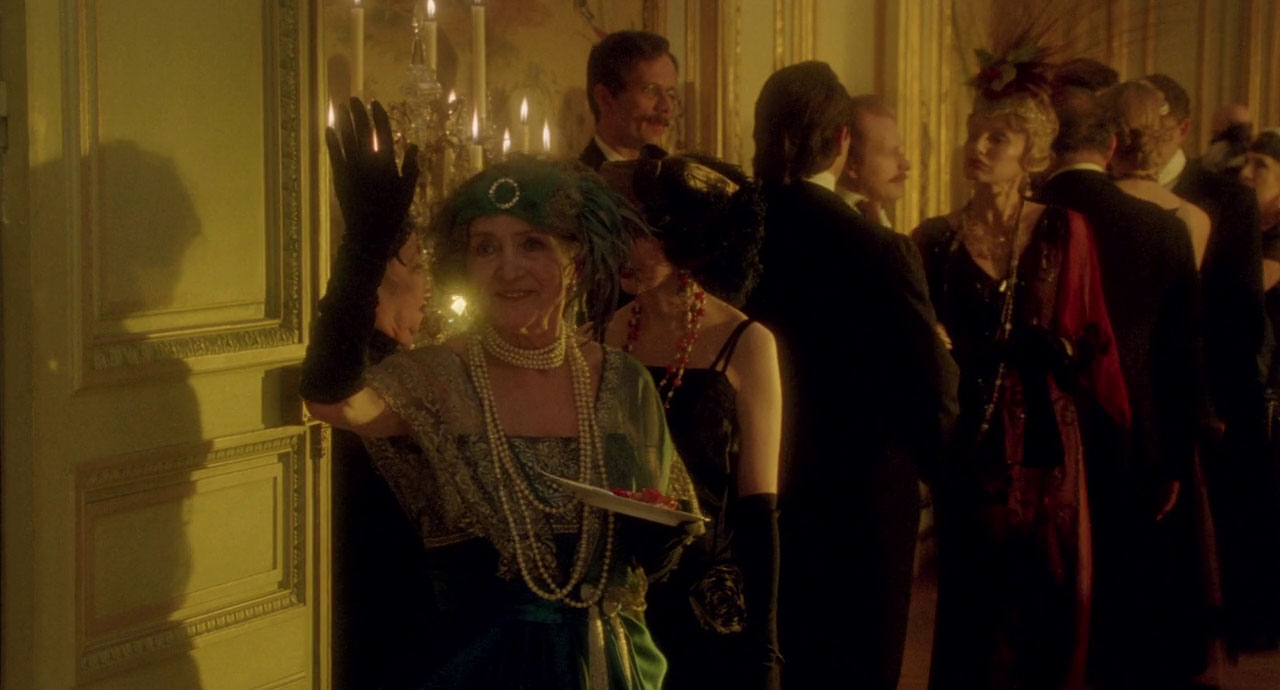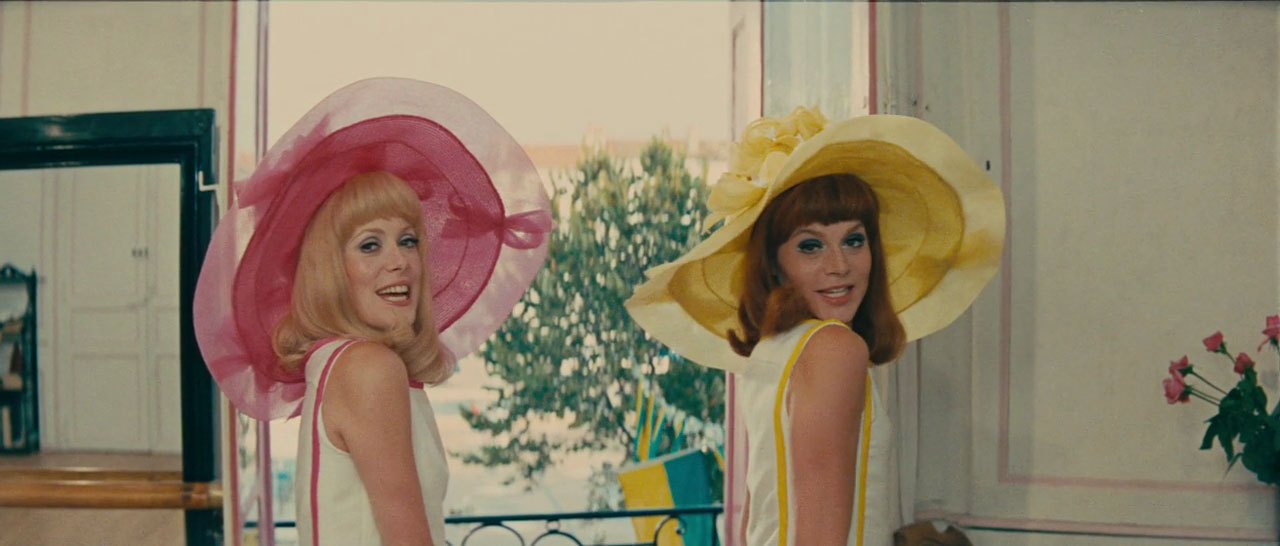Ruiz’s Proust adaptation sounds like a dream come true – I held off watching for years, hoping a blu-ray would come out – and it did! From the opening titles, the camera is already doing something dizzying, and there’s a feverish guy in bed, the furniture moving by itself. So far, so close to Mysteries of Lisbon. This turns out to have more stylish flourishes and be more properly expensive looking than Lisbon – but Lisbon is more interested in telling a story than Time Regained is.


The video extra by Bernard Génin says Rene Clement, Luchino Visconti, and Joseph Losey all tried to film Proust. Volker Schlondorff’s Swann In Love is good except for Alain Delon’s casting (“sacrilege”), and Nina Companez’s four-hour miniseries is “a creditable effort.” Ruiz skipped entire books and episodes, including the ones covered by Schlondorff and by Chantal Akerman in The Captive, looking for a way to convey Proust’s prose and time slippages through cinematographic means (including long takes and alarming edits). I haven’t read any Proust, and sometimes I can’t tell one identically-dressed mustached man from the other, so didn’t follow the story so much as enjoy the trip.
Gilberte:

Edith:

“Then, one day, everything changes.” Proust is in bed at the beginning, dictating to serious-looking Mathilde Seigner (Venus Beauty Institute), then he’s played by different actors at various ages throughout the story.
Red-haired Gilberte (La Belle Noiseuse star Emmanuelle Béart) is with blond Robert Saint-Loup (Pascal Greggory from a bunch of Rohmer and Patrice Chéreau movies), but when he’s supposedly on business trips he sneaks off with Rachel (Elsa Zylberstein, star of That Day). Gilberte confides in Marcel (usually played by Italian Marcello Mazzarella), arrives in one scene dressed as Rachel – not the only time the movie tricks us by substituting identically-dressed women. Oriane (the great Edith Scob) is pissed at Gilberte, thinks she was sleeping around, and not Robert. He eventually enlists in WWI, thinking the war won’t last, and dies in battle.
Saint-Loup’s tribute to The Prestige:

Charlie Morel is a longhair violinist, wanted as a deserter (Vincent Perez, star of The Crow 2). Jacques/Bloch (he changes his name) is Christian Vadim (Night Across the Street), and the “American” woman he’s with is Arielle Dombasle (La belle captive). John Malkovich is Baron Charlus, who pays young men to beat him bloody. Catherine Deneuve appears in at least two time periods, looking the same in each. She is Gilberte’s mom, and each of them changes names at least once, adding to my confusion.

In here somewhere is Melvil Poupaud (the kid from City of Pirates and Treasure Island), still looking younger than his mustache… party host Madame Verdurin (Marie-France Pisier of Celine & Julie)… and Marcel’s girl, the curl-haired Albertine (Chiara Mastroianni of Bastards)
Mouseover to see a false Mme Verdurin become Marie-France Pisier:


The DP worked with Resnais, and the editor with Rivette, which feels about right.
Played Cannes with Rosetta, Ghost Dog, Kikujiro, and Pola X.
Slant called it “one of the boldest literary adaptations ever made,” and calls out the sound design: “the intense care placed into using sound to capture the material’s subjective perspectives. Small noises like the scratch of a pen on paper or distant bells can become deafening in the mix as they trigger new reminiscences.”
Ebert’s review is the only great one, taking the movie’s (and novel’s) focus on memory and loss to heart.














































